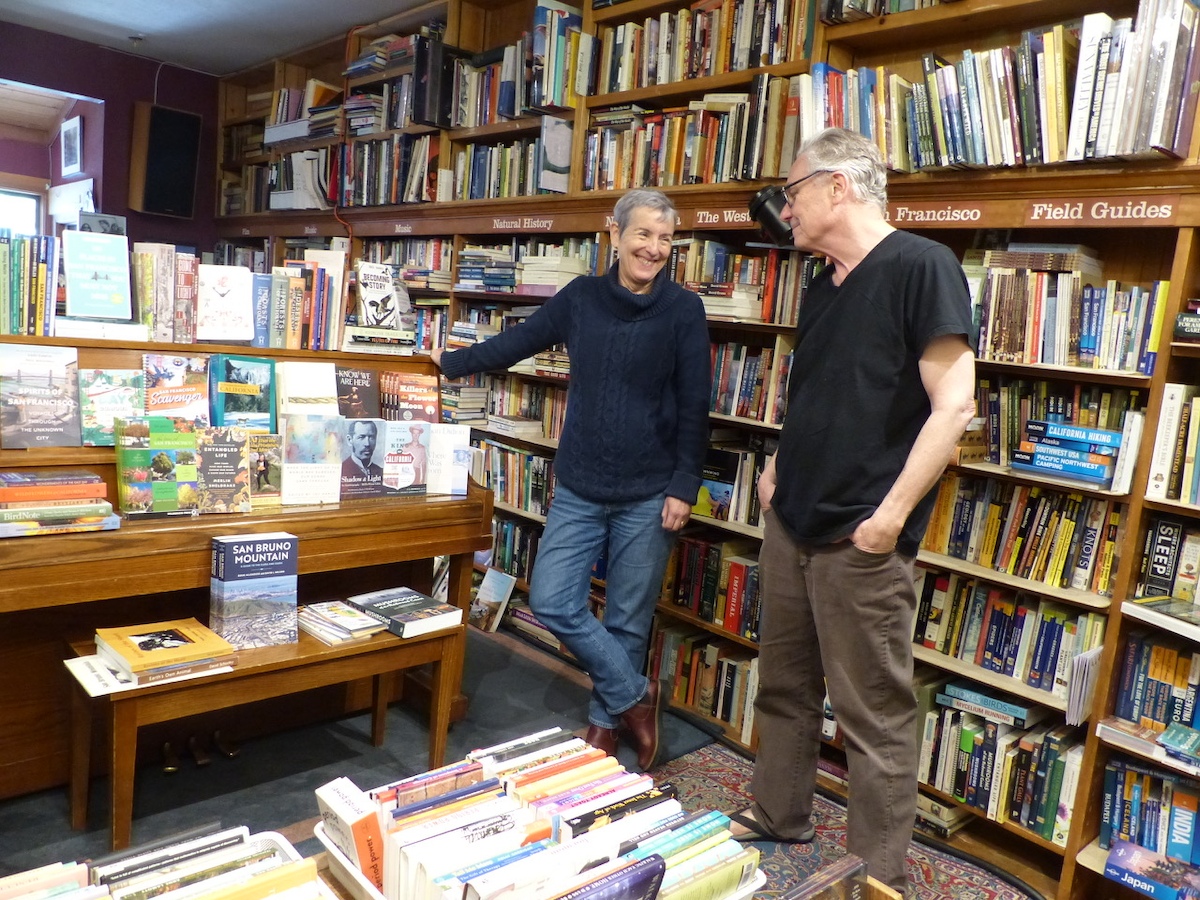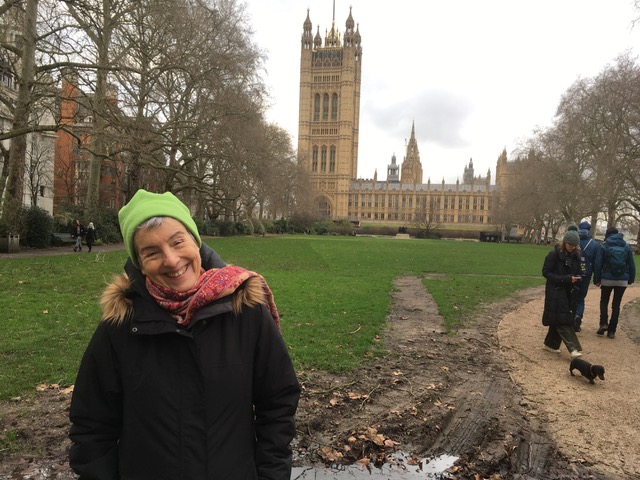Get to Know Our New President: Juliana Grenzeback

New Leadership, Same Dedication
In 2023, Charlie Casey marked his 20th year as President of PFS. As he reflected on the lessons learned during this time, a consistent source of pride for him has been our incredible team. Now, we’re excited to announce a new chapter for our leadership team. Beginning in February 2024, Charlie will take on a newly created CEO role, shifting his focus more to external and client relations and Juliana Grenzeback will step into the role of President—which has been reframed with a dedicated focus on internal operations and our team.
Juliana has been an invaluable part of our Management Team since 2015, serving as Vice President of Finance, HR & Operations. She brings a wealth of experience and fresh ideas that we know will bring PFS to new heights. Charlie and Juliana are looking forward to working together and believe delineating the leadership roles in this way will ultimately provide time to be more strategic and intentional while planning for financial health and future growth. Join us in welcoming Juliana to her new role!
What inspired you to get into philanthropy?
I wasn’t originally inspired to get into philanthropy, rather I was inspired to come work at PFS, specifically. I have worked on the other side of the fence, within nonprofits, my entire working life and had no interest in jumping the fence as it were. But when I left my last position, I did an informational interview with PFS’ former Vice President—who’s long since retired—and I was so impressed by the organization. Eight years later, I still get a little choked up about it, but I was just so impressed. After the interview, I thought to myself that this is the place I want to work. The PFS team’s attitude towards their work has this incredible degree of humility and a lot of joy. I thought to myself that this is the place that I want to be, and it serendipitously worked out that way.
Is there a topic or trend in philanthropy that is top of mind for you?
There are several. First, many people are stuck on perpetuity and wanting to be around for a long time to be able to do giving for a long time, which is influencing their short-term giving and limiting giving in the here and now when it’s really needed. This is something that we as an organization are trying to push our clients to think a little bit more about, because there’s no point in existing in perpetuity if there’s no perpetuity left. Given the way the world is—all the needs and issues going on—the funds are needed now.
The other big topic for me is general operating support and multi-year support. Having worked in nonprofits on the receiving side of foundation money, I know that the work is already hard enough so why do we make it harder for people to have the financial means to carry on that work? For PFS, we’re really trying to help our clients move their thinking towards a greater, deeper sense of generosity. I believe people have a natural instinct for generosity and PFS can help them develop this instinct to a degree that they may not have thought possible before.
How does equity show up in your work at PFS?
In my work at PFS I deal with operations, HR, and finance, so I tend to be internally focused with a hyper focus on our employees, the policies and procedures that we’re putting in place, our compensation structure, etc. Our work centers around questions like ‘Is it really including everybody?’ and ‘Does it really consider equity?’ I have a predisposition or bias, if you will, towards the underdog and the marginalized. I do my best to ensure that we’re really considering everybody—all of our employees—in all of the decisions that we make.
Would you say that would carry on to your next role as President?
I think as President I have a greater opportunity and obligation. We have a fabulous Vice President of DEI and Strategic Initiatives plus a dedicated DEI team that is helping lead a lot of our equity work internally, but I think for me personally and in my position as President, I have more opportunity to make sure that it’s not siloed nor is it the responsibility of just this one team. Rather, it is something that needs to be embedded across the organization and everything that we do. In a perfect world, there wouldn’t have to be a DEI team because everybody is part of the DEI team—that’s just how people would operate. We’re not there yet, but that’s where I want us to go.
Considering PFS’s five organizational values—generosity, respect, integrity, inclusion, commitment, and humility—share how one of them shows up in your day-to-day work.
Humility… a lot. Both internally and externally. In my role, I’m the one that must address unhappy clients or when things are not going well. And just in the nature of the work that we do, I need to be aware that we at PFS are the conduit and facilitator for funds to help people do important work, but we’re not actually doing the important work. For example, we’re not the ones that are feeding the homeless, but we’re making sure that those that do can continue doing their work. While our role is important, it’s really in service to something else. It’s not an end in itself.
What is the best thing about PFS, in your opinion? (If you can’t pick one, feel free to list up 1-3.)
It’s the people. It’s also dog friendly (which helps), but it’s really the people. PFS is the first place I’ve ever worked where people are people first and agendas come second. Sure, everybody has their issues, but everybody’s really trying to move in the same direction and is incredibly collaborative and supportive of each other. There’s very little territory building, political agendas, or any dysfunctional office dynamics that can often happen in organizations. People are really here because they want to be here and because they really care about the work that we’re doing.
What excites you about the future for PFS? Are there areas of opportunity or change you would like to explore down the road?
We can always get better at what we do. One of my goals as President is to really help us crack this nut of how we can be more efficient—to help us get to the point where we can be really productive–but not be stressed out about it. I was recently reading this article about strategic slowness, the new trend, and how it’s about being steady and persistent, rather than being fast and stressed out, which can make everything seem more dire than maybe it truly is. Strategic slowness can provide more of a sense of ease in our work. Not to say that we’re not working hard, but adding false urgency creates more stress for ourselves when a more mindful, thoughtful approach can set a smoother rhythm for ourselves and our work.
The thing that excites me the most is really moving our clients towards greater generosity in a gentle, kind, and supportive way—really helping them recognize how much more they can be doing. We at PFS are a customer service organization, but we also prioritize helping our clients move in a direction that will further develop their goals and expand their vision. Continuing to build our clients’ generosity muscle is going to be really exciting for us.
A year from now, when you look back at your first year as president, what do you hope to have accomplished?
In addition to what I’ve mentioned above, from a structurally, internal point of view, I intend to ensure that Charlie and I understand what our separate roles are and that everybody else does too. It’s going to be an evolving process. I’m really excited about the opportunity this gives us at PFS for Charlie to be more out in the world and all the great things that can come from that. By helping him be successful and supporting him, we’ll be able to raise the overall profile of PFS externally. I think we’re a really well-kept secret and I think more people should know about us and the work we do.
How has your work changed your outlook?
Working on the nonprofit side you have certain visions about how philanthropy is and how it operates. While some are true, by working on the philanthropy side I’ve expanded my understanding of the struggles that philanthropists and family foundations can have. It has also really exercised my patience and compassion skills. Plus, it has made me a little bit more strident about the need for changes in the field of philanthropy as a whole.
Here in the Bay Area, our region is changing rapidly in both positive and challenging ways. As you consider the changes, what’s your greatest hope for the Bay Area?
I’ve lived in San Francisco for a really long time. And while I don’t want to go back in time, there wasn’t so much sense of imbalance between the very, very wealthy and the very, very poor. Lately, it feels like the two extremes are more extreme and there’s less middle ground. I wish we could get a handle on the inequitable distribution of wealth and the impacts that has on housing, mental health, and drug addiction and how they are really related.
Our world has benefitted from the leadership of so many change-makers, past and present. Who do you especially admire?
There are hundreds of famous change makers. But the people I especially admire are people I’ve known personally who are change makers in what many might consider small arenas. They’re not famous or well-known, but they have had a direct impact on me and provided models to me for how to live my life.
What’s something unexpected that you like to do outside of work?
I’m trying to learn to play the accordion and I’m taking up folk dancing again after a very long hiatus. I have a reputation for throwing dinner parties at the drop of a hat; my husband says he attended more dinner parties in the first six months of dating me than he had in the previous 20 years.
And lastly, what are you reading or listening to?
I’m listening to Pascal Comelade, who’s a French musician, because we just got back from two weeks in Paris. I have this pile of fantastic music that I’m working my way through. In terms of reading, I have about five different books going at any given time. The one I just finished is Better by Atul Gawande, which I realized I had read before but found it to be totally worth a second read. I’m also reading a book of essays by Barbara Brown Taylor, who calls herself a “spiritual contrarian” and has a thoughtful and interesting take on the “big questions” of life.
Top Photo: Juliana and proprietor Eric Whittington share a joke at Bird & Beckett Books and Records, the little SF bookstore that does great things.

Photo: Juliana smiling despite 30 degree weather in London.
Contact us to discover how we can tailor our services and handpick a team of professional experts to support the specific needs of your foundation.